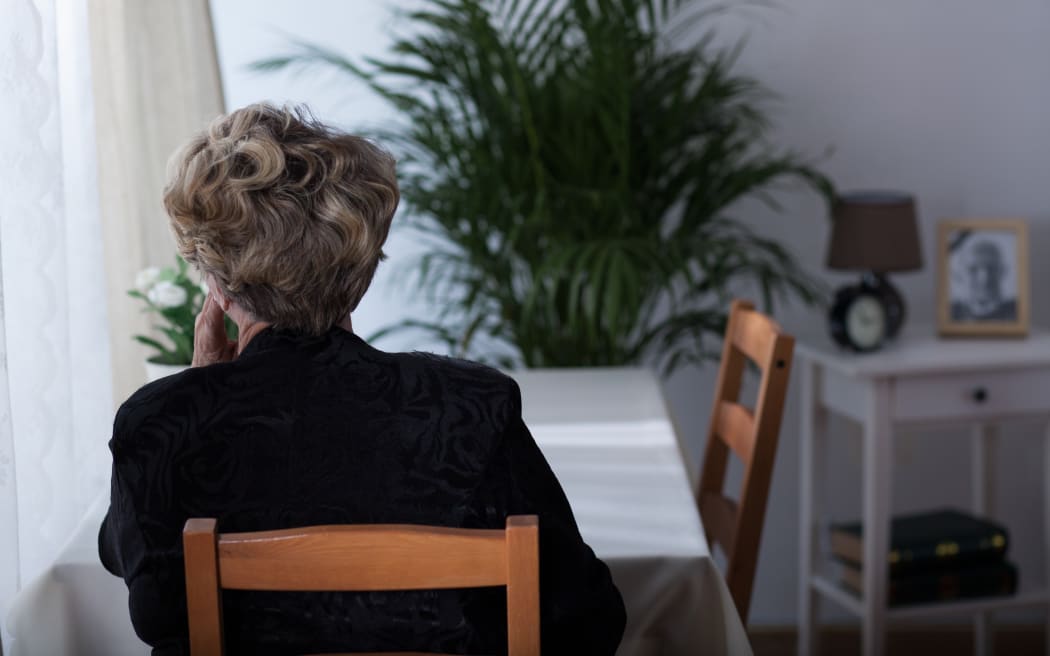
Roughly a third of retirees are renting, and the Retirement Commission expects that to double by 2048. File photo Photo: 123rf
There are significant inequities in how Kiwis experience the later years of life, according to a review of New Zealand's retirement policies.
The Retirement Commission said fewer retirees were living in houses they owned, and many struggled to afford food and rent.
Retirement Commissioner Jane Wrightson said a comfortable retirement was not a sure thing anymore.
"We're trying to bust the myth of the dominant narrative of retirement," she said, "which is a wealthy-ish person owning their own home with sufficient capital to live quite comfortably.
"That's 50 percent of the population, give or take a bit, and that's going to decline over the next 10 or 20 years."
Roughly a third of retirees will be renting by 2048 - 100 percent more than today.
Māori, Pasifika, and women were the biggest focus for this latest review, because they had disproportionately lower savings, she said.
"It's because they have, generally speaking, earned less over their working life," she said.
"They would have suffered more than the normal life shocks, and they would have taken time out of work for caregiving."
It was important to these communities to keep NZ Super's age of eligibility at 65 to avoid further inequality, she said.
But that money was not going as far as it used to, with more retirees taking on debts to afford a comfortable life.
Natalie Vincent is the chief executive of Ngā Tāngata Microfinance, a provider of low-interest loans to help Kiwis out of debt. She said many of her clients were retired.
"We've seen an increase in the last 12 months of people applying for small loans, either to pay off some unmanageable debt or to purchase something," she said. "That's increased by nearly 50 percent for [the over-65] age group."
Retirees often took loans just to keep up with their daily essentials, from car repairs to the weekly shopping, Vincent said.
"We're talking about debt for purchasing things they need, it could be a car loan, it could be whiteware," she said.
"We're seeing more and more people reach retirement age that don't have any savings, they don't have a nest egg."
Of Ngā Tāngata's elderly clients, 61 percent are women.
Retirement Commission policy director Suzy Morrissey said retired women struggled a lot more than men.
"Women, on average, have 20 percent less in their KiwiSaver than men," she said. "At all age groups, so from the under-17s through to the people that are over 65."
A combination of factors, such as the gender pay gap and a lack of income during maternity, made it harder for women to save for retirement, Morrissey said.
All of this while housing gets more expensive. Morrissey said retirees were spending far too much on their accommodation.
"The current situation is that renters in the 65 to 74 age group, two thirds of them are spending 40 percent of their Super on housing," she said.
"Within that group, 40 percent of them are spending 80 percent of their superannuation on housing costs."
The commission recommended the Accommodation Supplement, which contributed to a person's rent, be made more accessible. The cash asset test, which determined someone's eligibility, had not been adjusted since the '90s.
Vincent said it would be a game changer.
"It's just not high enough," she said. "People are paying a huge percentage of their Super toward private rent.
"An Accommodation Supplement increase would actually alleviate a large amount of that financial pressure, and put some money back into that person's weekly budget."
The Retirement Commission said resolving pay inequity and housing issues would require collaboration between the government and the private sector.
'It is a poverty preventer'
Wrightson told Morning Report she did not have a strong view on whether the retirement age should be raised when she took up her position and the recommendation to keep it at 65 issued in the latest review was "evidence based".
"A lot's happened in the last three years," she said.
"We've done 16 really deep pieces of research and it's now very clear to me that there are three narratives going on in retirement."
The first was that detailed above, of the "wealthy-ish person" who had a mortgage-free home.
But there were two other groups which tended to be overlooked in discussions, she said: those who died early - meaning they never benefited from the superannuation they'd paid taxes towards, and those who were surviving on the pension "and not much else".
In addition, Wrightson said there was an "emerging narrative" of those who had to rent in retirement. That group, she predicted, would increase 100 percent by 2048.
"These people are going to have significant issues because NZ Super is predicated on you either having a mortgage-free house, or a comfortable little social housing flat, and both of these aspects ... are under significant pressure."
Wrightson said the recommendation to increase the Accommodation Supplement or the availability of it would help those struggling most with high housing costs in retirement.
"It's an obvious and quick fix the government could do, should they choose."
The supplement was means tested and its cash/asset cap of $8,100 had not increased for three decades, she said.
"That rate was set 30 years ago and based on 10 percent of the average house price, so clearly there's a problem."
She acknowledged there were "many competing tensions" in government expenditure, but said she did not believe there was enough conversation about the value of NZ Super.
"It is a poverty preventer and it respects the unpaid and community work that retirees do, which is calculated at several billion dollars' worth of labour each year."
Superannuitants also paid tax, she added: "So I say it's a cost-benefit analysis, it's not just a cost".







